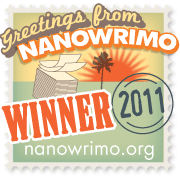[Warning: this blog contains spoilers and some content that may not be suitable for those of a weak or squeamish disposition. This blog also contains gore.]
I’ve just finished reading The Hunger Games trilogy and I have to ask: what’s all the fuss about? Ok, so the first book’s definitely the best of the three, but even that’s pushing it. The characters are annoying at best and rarely are they developed sufficiently, while the first person ‘present tense’ perspective just doesn’t work.
But this blog isn’t about The Hunger Games as books, nor is it about the author or indeed the many fans of the books that there are out there. No, this blog is about the content, and what it reflects about us as a society.
The content is – and I don’t use this term lightly – horrific.
Why, for all that is good in the world, are the atrocities depicted in the Hunger Games allowed to go to print? Why do we package these things up in brightly coloured books aimed at impressionable youngsters, and sell it as something that is both acceptable and (dare I say it) ‘fun’?
For those of you who haven’t had the chance to read The Hunger Games, the series depicts a world in which children are selected at random to fight in massive arena death-matches in order to win food supplies for their district. If you’ve ever seen the film Battle Royale you wouldn’t be too far from the mark, though it has to be said The Hunger Games is nowhere near as subversive.
So anyway, aside from the obvious brutality of children killing each other, as the series progresses and the civil revolt against the system spreads to the Capitol, President Snow brings the atrocities from the hunger games onto the city streets. These include genetically engineered mutants, death beams, choking smogs and all sorts of other horrible evils. At one point someone even dies by having their flesh melt from their body.
Yes readers, you did read correctly, and yes, this is a book marketed for young people.
What gets me more than anything is not so much the atrocities themselves, or indeed the lack of truly intelligent, subversive story telling. What gets me the most is the fact that to make this stuff suitable for children there is barely any effort made to dwell on what’s happened. This is a world without consequences; a text where the reader is actively encouraged to ignore both the human and the practical implications of what has happened. It’s the literary equivalent of the Michael Bay movie – lots of explosions and people dying and getting hurled about, but with no real attempt to engage with the audience.
It saddens me to think that young people (and adults!) are reading this stuff and enjoying it, while blindly ignoring the messages that responsible authors should be ensuring reside within their text.
As I finished the third book in The Hunger Games series I couldn’t help but think it could have been so much more. Even though the premise clearly isn’t original, there was still a great deal of potential to be had. As I read the books I really wanted them to delve further into how the rebels are just as bad as the original oppressors, and how Katniss is mercilessly exploited for the ends of others. Doing this in the final two chapters really isn’t good enough in my mind, and I finished the series feeling empty, wishing instead that I’d dedicated my time to re-reading some of the classics instead of this ‘tick box’ bestseller.
I can categorically say to you all now that in my opinion The Lord of the Flies is a much more powerful, much more effective work than the Hunger Games, without anywhere near as many fatalities, and without anywhere near so much gore. For a novel that properly addresses the issues that are hinted at in The Hunger Games read Animal Farm – and new wave ‘young adult’ fiction well alone!



